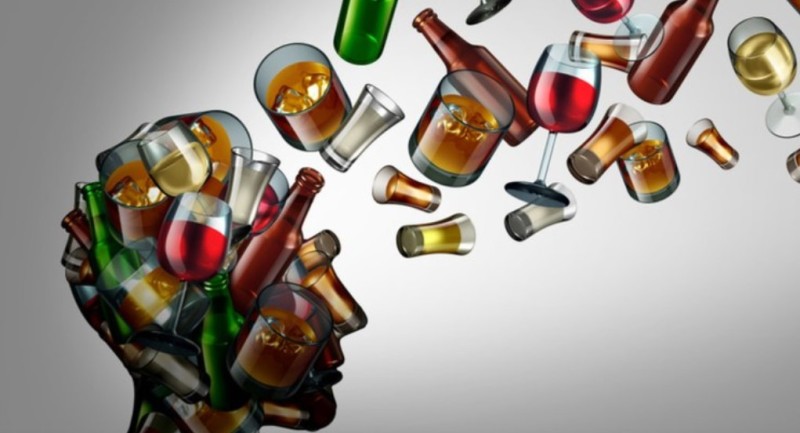Exploring the Connection between Gambling Addiction and Substance Abuse
When we think about problem gambling and substance abuse, we intrinsically feel that these two are very often connected. The fact is that gambling addiction is frequently accompanied by some sort of substance use disorder. As a result, the thrill of gambling may be severely distorted when substance abuse is a part of it. And in the case of problem gambling, things can get even worse. In this context, which substances are most commonly used?
Different Types of Substance Abuse and Gambling
The most commonly abused substances in conjunction with gambling include caffeine, tobacco, alcohol and drugs.
Caffeine
The mildest form of the substance used is coffee and other caffeine-rich drinks. Caffeine and gambling activity keep the player awake at night and fully concentrated. As a player keeps his concentration due to caffeine, and often there is no clock or excessive space in casinos, the player logically completely loses track of time.
On the other hand, caffeine boosts dopamine signalling in the brain, making it more sensitive to this particular neurotransmitter. As a result, the strong connection between dopamine and gambling activity is further enhanced.
Tobacco

Cigarettes are often smoked during gambling. In regulated land-based casinos, it is not such a big issue, since there are separate smokers' rooms or modern ventilation systems installed. However, gambling in unregulated places could lead to problems. If the private room where gambling takes place is small and poorly ventilated and everyone smokes, there is a risk of carbon monoxide poisoning. Bad air and lack of ventilation reduce concentration during the game and forces you to act inappropriately.
Alcohol
Alcohol is the most common substance used for gambling, socializing, and the creation of a ‘good atmosphere’. In the majority of countries, alcohol is a socially acceptable and legal substance. Moreover, alcohol consumption is encouraged in different environments including brick and mortar casinos.
While drinking excessively, a player loses his sense of time, he has a false impression of high self-confidence, which of course contributes to the reckless decisions he makes at tables.
With everything that pathological gambling does in itself, as elaborated in an article about the negative psychological effects of problem gambling, alcohol additionally intoxicates a person resulting in reckless and stupid moves. Combined with the delusional picture of reality things can gradually become more and more complicated. The logical consequence is the player’s inability to quit the game which may lead to a significant financial loss.
It's worth mentioning that the alcohol-gambling connection can go both ways. A usual action of a person addicted both to gambling and alcohol may be to drink to ease their nerves before a big game of poker or blackjack. But visa versa also applies here. After losing sessions and long dry spells, the player reaches for the bottle to ease the pain and deal with anxiety after massive financial damage.

Drugs
Any chemical substance that has a physiological effect when ingested or otherwise introduced into the body is called a drug. After consumption, it rapidly causes a change in an organism’s psychology or psychology. In the vast majority of countries, drug use is not publicly allowed or accepted. Therefore, it can be said that alcohol is a more common problem because it is accepted as something perfectly normal.
The most common form of substance abuse combined with gambling is the use of cocaine. Many gamblers say that cocaine helps them concentrate, but this impression is false. It also falsely raises self-confidence. Here, the social moment is important again, because if it is acceptable to take drugs in a gambling society, players will probably take them.
Recent researches suggest that gambling addiction activates the same brain pathways as drug and alcohol cravings. Furthermore, the parts of the brain controlling our impulses may be weakened in people with gambling addiction. The ultimate goal is to identify key brain areas and open avenues for targeted treatments that may effectively prevent cravings and relapse.
How Gambling Leads to Substance Abuses
The entertaining side of gambling and intense and pleasurable socializing is only one side of the coin. The other side is a dangerous story of addiction and the related social cost of gambling and substance abuse.
In specific circumstances, gamblers may search for salvation and a quick fix after losing a lot of money. They may be overwhelmed with a feeling of guilt and the pressure connected with it is extremely difficult to deal with. An easy solution is to use alcohol, drugs, or other stimulants. This often leads players towards a vicious circle of dealing with two powerful addictions - gambling and substance abuse and without professional help, outcomes are grave and possibly tragic.
The Social Cost of Gambling and Substance Abuse
It is not rare that this ‘combo’ of gambling addiction and substance abuse may lead to a crime. For instance, if a person who entertains both gambling and drug addiction loses his money, he may resort to criminal activities, such as theft to maintain effectively his drug addiction.
It is now easy to see the ugly consequences of substance abuse in the context of gambling. What about the social cost of gambling? In scientific literature, the social cost of gambling is thoroughly analyzed. These costs are not always clearly seen or perceived. They are often misunderstood or even overlooked. It is essential to carefully consider all the aspects of the social costs of gambling.
The social costs of gambling fall into nine groups:
Crime Costs
Business and Employment Costs
Bankruptcy
Suicide
Illness Related to Pathological Gambling
Social Service Costs
Direct Regulatory Costs
Family Costs and
Abused Dollars.
Conclusion
To summarize, the strong connection between gambling (especially problem gambling) and substance abuse is evident. In most cases, it leads to negative consequences and could highly influence a gambler’s ability to make rational decisions resulting in financial and emotional problems. Always gamble responsibly and avoid using substances that could impact your process of thinking. If you are gambling online, follow the responsible gambling guide for valuable information to gamble moderately.
Most popular News / Blog
The Truth About Oscar’s Grind; Will the Oscar Betting System Make you Rich?
05/09/2020 - 6:38 AM
Tips To Consider When You Search For The Safest Online Casinos In 2020
12/06/2020 - 4:49 PM
Checking Out The Online Gambling Advantages Over The Land Based Casinos In 2020
05/06/2020 - 3:27 AM